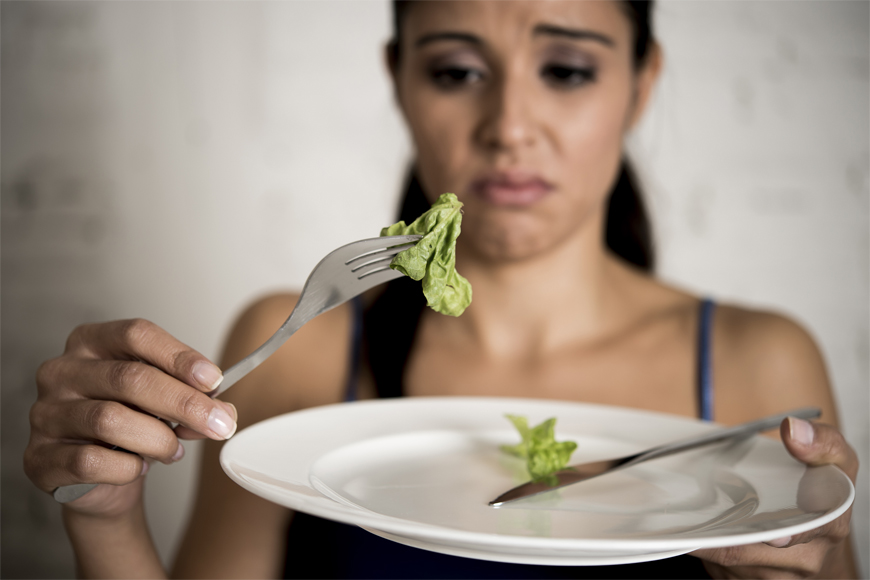The metabolism has a bad rep when it comes to weight loss, but is it the enemy we make it out to be?
4 November 2018
| Last updated on 4 November 2018
You’re eating a balanced, nutrient-rich diet, you’re regularly working up a sweat in your local spin studio.
So when you step on the scales after weeks of blood, sweat and tears, why has your weight-loss progress stubbornly plateaued?
Perhaps it’s your genes, rather than your lack of gusto on the treadmill, that holds the answer.
Chances are you’ll have heard someone blame their slow metabolism for their weight-loss struggles at some point.
The general idea is that if you’ve been blessed with an overactive or fast one, you can eat more, work out less, and still maintain a svelte figure.
But what exactly is the mythical ‘M’ word, how does it work, and can it really be the reason why some people find it harder to lose weight than others?
The metabolism in a nutshell
Your metabolism isn’t a single organ.
It’s actually an umbrella term that’s used to describe lots of different metabolic reactions that occur in the body, whose job it is to keep you alive.
These reactions do a variety of things like generate energy, regulate growth, repair and general body maintenance.
If you laid in bed all day and didn’t move a muscle, the calories you’d burn just from staying alive would be what’s known as your ‘basal metabolic rate’.
Generally speaking, the speed of your metabolism is judged on the number of calories you burn in a given amount of time.
It’s as simple as this: The faster your metabolism, the more calories your body needs.
This is the reason some people can eat a lot without gaining weight, while others seem to need less to accumulate fat.

How does having a slow or fast metabolism affect weight gain?
If you have a slower metabolism, you’ll burn less glucose and fat and may gain weight if your energy intake is more than your energy expenditure.
The metabolism slows down as we get older, which may be why some people suddenly find it harder to keep extra weight off.
Resting metabolism also slows by around 5% every 10 years after age 25 and as a result, your daily need for calories goes down.
By the time a woman is 75, she actually needs around 300 calories less per day than when she was 18, and 130 calories less per day than when she was 50.
The difference is even greater in men, who need around 655 fewer calories per day at age 75 than when they were 18 years old.

Can you speed up your metabolism?
One of the easiest ways to boost your metabolism is to increase your exercise - whether that be a brisk walk, run or gym activities.
High-Intensity Interval Training (HIIT) is one of the most effective types of exercise you can do.
It increases your heart rate, burns more calories and helps you lose more fat than more traditional forms of exercise.
If you spend a lot of time sitting, such as an office environment, move around as much as possible regularly throughout the day – standing up, stretching your legs and walking around, using a standing desk, and opting for the stairs rather than the lift.

- Tags:
- metabolism
- weightloss
- Exercise




.png?itok=HBSyMDok)









































































.png)


























.png?itok=0fOAXkOm)

























.png?itok=EH_x0Pha)
